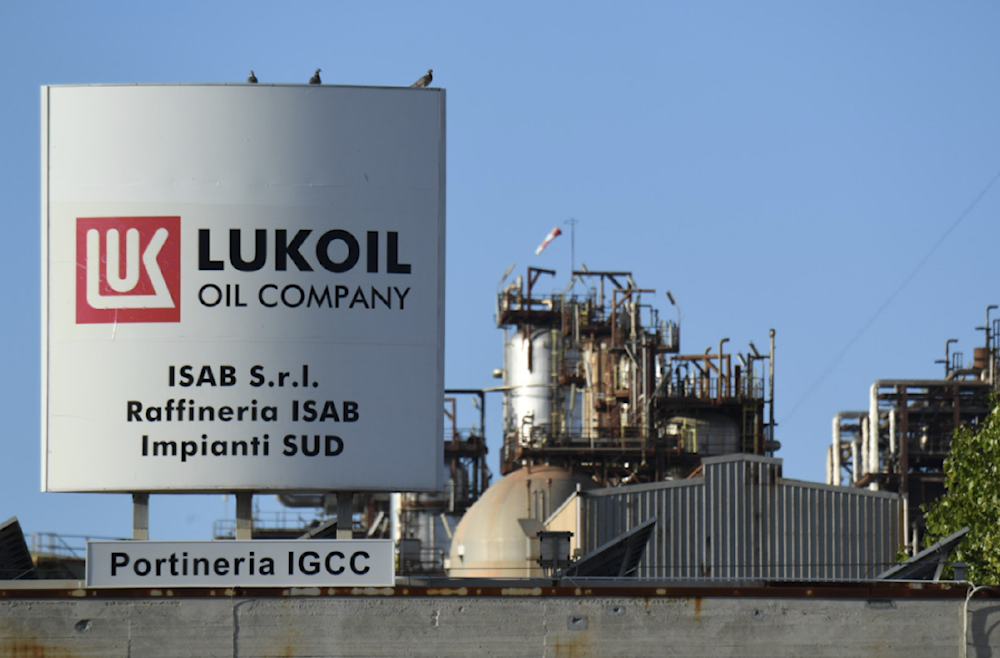US sanctions Russian oil firms, urges Moscow accept ceasefire
The United States has sanctioned Rosneft and Lukoil to pressure Russia into a Ukraine ceasefire.
-

Facilities of the Lukoil refinery are pictured in the Sicilian town of Priolo Gargallo,Italy, Friday, Nov. 18, 2022. (AP)
The US Department of the Treasury’s Office of Foreign Assets Control (OFAC) has imposed new sanctions targeting Russia’s two largest oil companies, Rosneft and Lukoil, in a bid to increase economic pressure on Moscow and push for an end to the war in Ukraine.
The move comes as part of Washington’s broader strategy to cut off the Kremlin’s financial lifelines and degrade its ability to sustain military operations.
Washington pressures Moscow
"Now is the time to stop the killing and for an immediate ceasefire," said US Treasury Secretary Scott Bessent. "Given President Putin’s refusal to end this senseless war, Treasury is sanctioning Russia’s two largest oil companies that fund the Kremlin’s war machine."
Bessent added that the US will continue to use its economic tools to support President Trump’s effort to bring about a lasting peace, urging international allies to adopt and enforce similar measures.
Dozens of subsidiaries added to sanctions list
Designated under Executive Order 14024, both Rosneft and Lukoil are being sanctioned for their roles in operating within Russia’s energy sector. In addition to the parent companies, OFAC listed dozens of subsidiaries involved in oil and gas exploration, production, and refining across Russia.
Entities owned 50% or more, directly or indirectly, by Rosneft or Lukoil are now also blocked, even if not named individually. The full list includes refineries, exploration units, and regional oil producers throughout the Russian Federation.
OFAC warns of secondary sanctions for violators
As a result of the sanctions, all assets of the designated entities in US jurisdiction are frozen, and US persons are generally prohibited from engaging in any transactions involving them.
OFAC warned foreign financial institutions and businesses of possible secondary sanctions if they facilitate significant transactions with any of the newly designated entities.
Sanctions violators, whether individuals or institutions, may face serious civil or criminal penalties under US law.

 2 Min Read
2 Min Read








